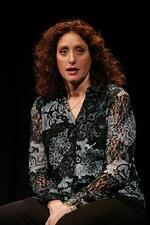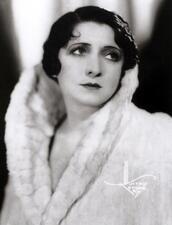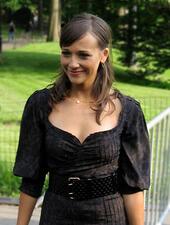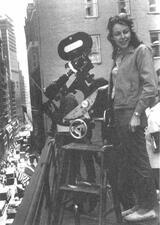Performing Arts: Comedy

Belle Barth
Singing her way through popular standards and performing imitations of Sophie Tucker, Al Jolson, Harry Richman, and Gypsy Rose Lee kept Barth employed on the vaudeville circuit through the 1930s and 1940s. The character of her act changed in the 1950s, when she began to mix her two talents—music and comedy—and added a splash of “red hot mama” for good measure.

Nora Bayes
Nora Bayes was a star in vaudeville and musical comedy in the early twentieth century. Known for her lush singing voice and hilarious acting, Bayes was a part of the Ziegfeld Follies, the Keith vaudeville circuit, and had her own one-woman show. Bayes had many arguments with male producers, theater administrators, and businessmen, as she often questioned the traditional role of women and asserted her independence.

Gertrude Berg

Joan Blondell
A beautiful and accomplished stage and screen actress, Joan Blondell was known for playing character roles as a wisecracking, working-class girl. Blondell toured all over the world, performed on Broadway, and eventually ended up in Hollywood doing movie and television work. In 1972 she wrote a novel, Center Door Fancy, based on her own life and career.

Rachel Bloom

Fanny Brice
One of America’s great clowns, Fanny Brice built her career on a Yiddish accent and a flair for zany parody. Brice earned a reputation as a vaudeville star before creating some of her best-loved comedic personae for radio.

Jean Carroll
Born Sadie Zeigman, Jean Carroll was the first Jewish woman stand-up comedian. Famous throughout the United States and England in the 1950s and 1960s, she innovated a new style of anecdotal, conversational stand-up.

Selma Diamond
Long before her final role as the grouchy bailiff on Night Court, Selma Diamond earned a reputation behind the scenes as a brilliant, salty comedy writer for some of the best shows on radio and television. Diamond wrote radio routines many famous comedians was a regular on the Jack Paar show and acted on stage and in many television shows and movies.

Lena Dunham

Nora Ephron

Zsa Zsa Gabor

Ilana Glazer

Judy Gold

Jennie Goldstein
Jennie Goldstein was one of the foremost Yiddish theater tragediennes, beloved by the public and acclaimed by critics for her acting skills and outstanding voice. During the 1940s, as opportunities in the Yiddish theater waned, Goldstein transformed herself into a comedian.

Nan Halperin
Nan Halperin was known as “The Wonder Girl” for her comic performances and rapid quick changes on the vaudeville stage. Halperin had a highly successful career, making her Broadway debut in 1914 and headlining on Broadway until 1934. She was one of the highest-paid actresses in vaudeville, famous for her “song cycle” performances.

Chelsea Handler
When her confession in a DUI class left people rolling in the aisles, struggling actress Chelsea Handler launched a brilliant new career as a comedian.

Alyson Hannigan

Goldie Hawn
After beginning her career as a dancer, Goldie Hawn won many awards for her critically acclaimed acting performances. She has been one of the most successful women in Hollywood and, since executive producing Private Benjamin in 1980, she has continued to produce films with her own production company.

Anna Held
Anna Held was a performer with a flamboyant reputation for bathing in milk and champagne. As an actor in numerous farces, comedies, and musical comedies, she led a life of showmanship that prevents bibliographical certainty. Held was best known for her relationship with Florenz Ziegfeld, and some credit her with helping him create his famous Follies.

Judy Holliday
A brilliant actress and comedian, Judy Holliday won an Academy Award for her performance as the not-so-dumb blonde in Born Yesterday and performed thousands of times on Broadway. Holliday epitomized the duality of her American-Jewish heritage, as she was a successful performer who was investigated for subversive activities in the McCarthy Era due to antisemitic suspicions.

Abbi Jacobson

Jewish Women and Comedy
This article looks at the place of American Jewish women in comedy. It chronicles the reasons comedy has been a difficult field for women and looks at the careers of several remarkable women who found success in different eras and forms of comedy.

Rashida Jones

Madeline Kahn



